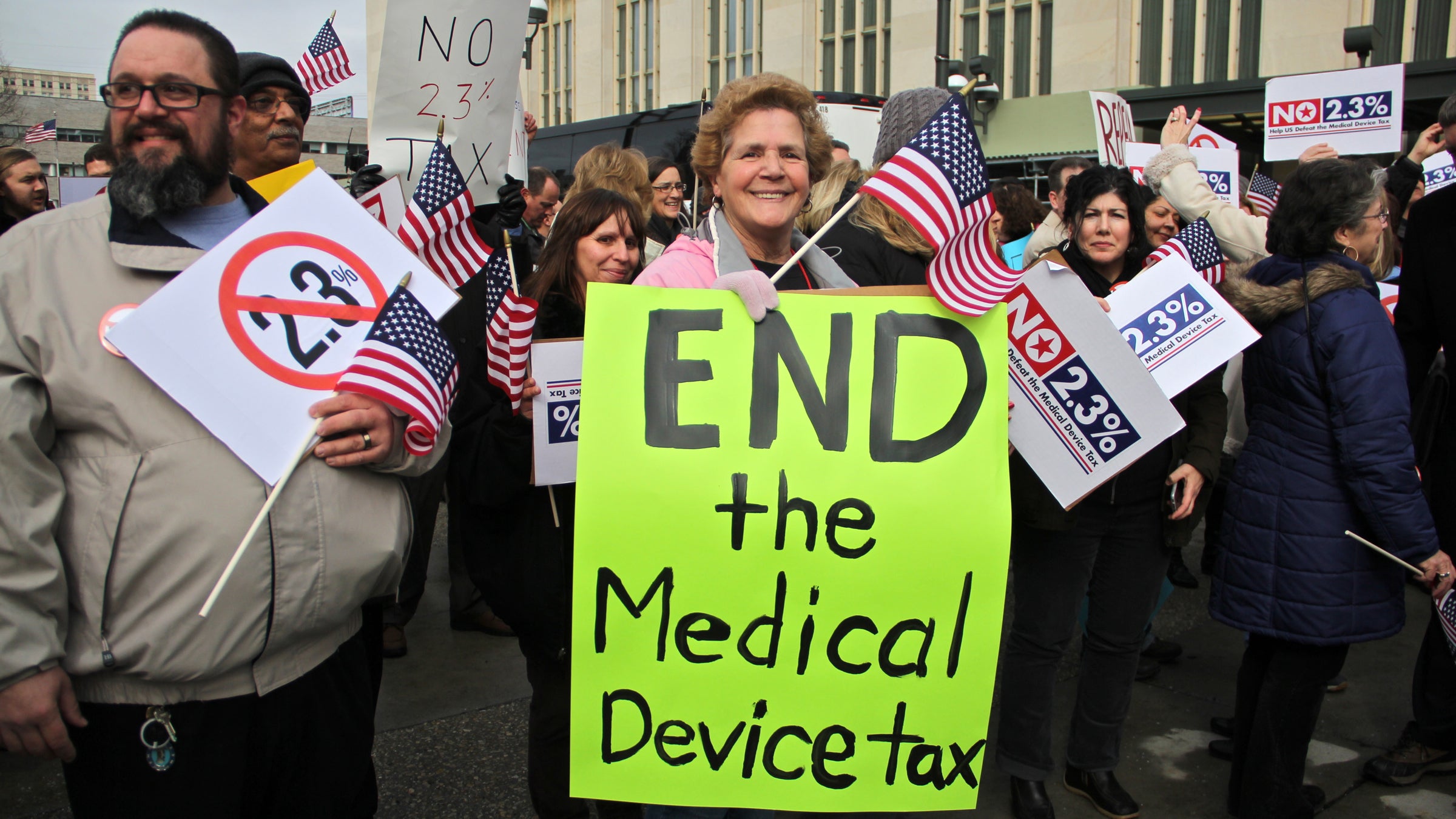Area industry hopes of eliminating medical device tax grow amid ACA repeal efforts

In 2015
As Republicans in Congress move to repeal the entire Affordable Care Act, the Philadelphia region’s medical device community has mounting hope and traction for the elimination of the medical device tax.
The 2.3 percent tax on medical device revenue took effect in 2015 as one of several funding streams to support the ACA. The Congressional Budget Office projected it would bring in some $20 billion over 10 years to help plug the deficit and pay for health reform.
But Bruce Shook, head of a 26-employee medical device company in Wayne, Pa., Intact Vascular, said the tax has created a chilling effect on the industry.
“Not just because it’s pulling cash out of companies that would otherwise be using it to develop technology and employ people, but also because it has put a damper on private investment in the space,” said Shook, who chairs the medical device committee at the trade group, Life Sciences Pennsylvania.
“And particularly companies like mine, small companies, that are developing new innovative technology, we are completely dependent on private investment to make that happen. It’s become tougher to raise money with the advent of the tax.”
Mounting pushback from the industry and increasing support from lawmakers led to a temporary suspension of the tax last year. A survey by the Medical Device Manufacturer Association found that since then, 70 percent of medical device company respondents reported an increase in hiring.
The suspension of the tax expires at the end of 2017, so the industry has been increasing pressure for a permanent repeal. On Thursday, Pennsylvania Senators Bob Casey, a Democrat, and Pat Toomey, a Republican, co-sponsored legislation to repeal the tax. A similar measure was introduced in the House.
“No one likes a new tax. They have a good argument there. And people like innovation,” said Robert Field, a professor of health policy at Drexel University. “But I think they’ve always had friends on both sides of the aisle, and they were able to use that in ways they couldn’t back when the ACA was passed.”
Eliminating the tax could also be folded into the broader repeal of the ACA.
Paul Vandewater, a fellow with the Center for Budget and Policy Priorities, questioned the notion that the tax has been a real impediment to innovation or jobs.
“The allegations from the device industry about the problems with the tax are greatly overstated,” Vandewater said. “The logic [of the tax], which is quite sound, is that various industries — including device manufacturers, drug companies, health insurers — were going to benefit from having tens of millions more people with health coverage, and it was only reasonable that each of them should contribute modestly to help defray the cost of additional health coverage.”
The 11-county Philadelphia region has about 275 medical device companies that employ some 8,500 people.
WHYY is your source for fact-based, in-depth journalism and information. As a nonprofit organization, we rely on financial support from readers like you. Please give today.

